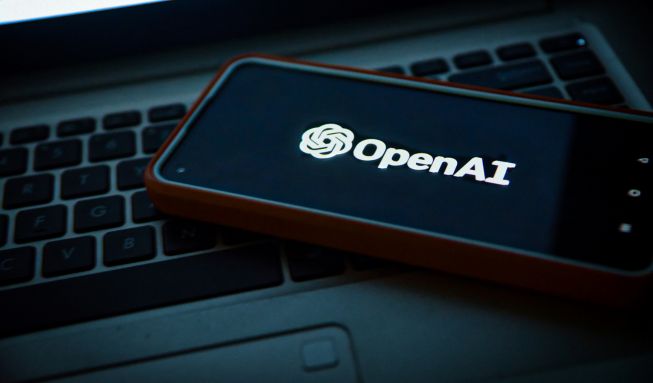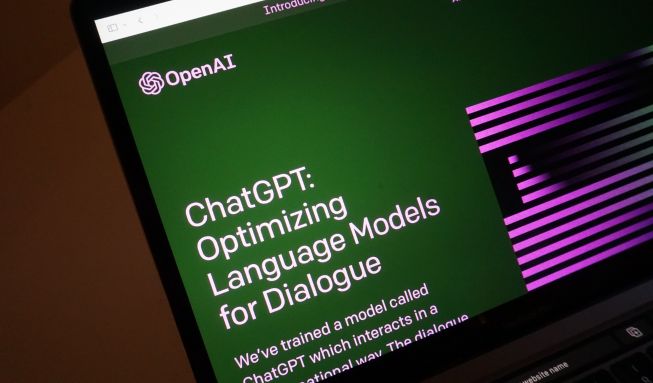In a recent turn of events, OpenAI, the trailblazing company behind the renowned ChatGPT AI tool, found itself in a legal entanglement that reverberated through the hallowed halls of the British parliament. The company reportedly pleaded its case to a committee, contending that the use of copyrighted works was indispensable for the training of its artificial intelligence model.

The Copyright Conundrum
OpenAI argued vehemently that the landscape of copyright today blankets an extensive array of human expression, encompassing blog posts, photographs, forum discussions, snippets of software code, and even governmental documents. In a bold statement reported by The Telegraph, OpenAI claimed that training contemporary AI models without leveraging copyrighted materials is, in essence, a monumental challenge.
The company emphasized that limiting training data solely to public domain content from over a century ago might yield intriguing experiments but would fall woefully short of meeting the demands of today’s tech-savvy citizens. It framed the situation as a fundamental necessity rather than a choice, asserting that without the inclusion of copyrighted works, the AI models would be vastly different and arguably less effective.
ChatGPT’s Soaring Trajectory
Since its debut in November 2022, ChatGPT has skyrocketed in popularity, emerging as a linguistic juggernaut capable of comprehending and generating human-like responses across a diverse spectrum of user queries. The AI model’s rapid ascent is underscored by its noteworthy achievements, including the adept summarization of research studies, proficiency in responding to logical queries, and even demonstrating prowess in cracking formidable business and medical entrance tests.
However, the meteoric rise of ChatGPT has not been without its share of legal challenges.
Legal Wrangles and Allegations
Post-launch, the AI firm faced legal tussles from prominent entities such as The New York Times and renowned personalities like Sarah Silverman, Margaret Atwood, John Grisham, and George RR Martin. These litigants alleged that OpenAI utilized their text without authorization to train ChatGPT, resulting in a cascade of lawsuits citing copyright infringement.
The New York Times, in particular, asserted that millions of its news articles were harnessed for ChatGPT’s training, labeling it as a colossal violation of copyright, commercial exploitation, and misappropriation of intellectual property. The newspaper argued that the AI tool now stands as a formidable competitor, rivaling its position as an authoritative source of information.
The Authors’ Guild’s Legal Salvo
OpenAI found itself in the crosshairs of a class action lawsuit filed by the Authors’ Guild and 17 authors. Rachel Geman, the attorney spearheading the legal onslaught, contended that the decision to replicate authors’ works without providing choices or compensation posed a severe threat to the collective role and livelihood of writers.
In response, OpenAI maintained its commitment to forging new partnerships with publishers, citing agreements with the Associated Press and media giant Axel Springer as strategic moves to gain access to valuable content. The company is striving to navigate the legal quagmire and redefine its approach to copyrighted materials.
Charting OpenAI’s Path Forward
As OpenAI navigates the intricate terrain of copyright challenges, it is evident that the company is proactively seeking collaborative solutions. The intention to form alliances with publishers like the Associated Press and Axel Springer reflects a strategic shift towards securing legitimate access to copyrighted content.
OpenAI’s initiative to engage with publishers signals a nuanced approach to address the concerns raised by litigants. This collaborative strategy underscores the company’s commitment to evolving in tandem with legal expectations while ensuring the continued innovation and advancement of AI technologies.
Looking Ahead: OpenAI’s Ongoing Efforts
In conclusion, OpenAI stands at the forefront of a paradigm shift, where the intersection of technology and copyright law demands careful navigation. The legal battles it faces underscore the broader challenges within the evolving landscape of AI development. The outcome of these legal struggles will undoubtedly shape the future trajectory of not just OpenAI but the broader AI community.



